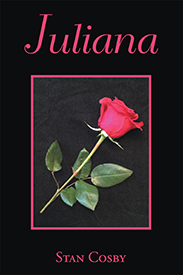
 |
In this imaginative narrative, author Cosby depicts encounters between Julian of Norwich, Benedictine mystic and anchoress, and her close friend and admirer, Margery Brunham, beginning in 1389 AD. Postulating that her widowed father may have abused Brunham, Cosby places her in the convent with Dame Julian, a survivor of the Black Plague years. Julian, asking Maggie to call her Juliana, seems to know what the teen is thinking, empathizes with her guilt-soaked nightmares, and offers edifying interpretations that turn them from darkness to the light of God's truth. One repeated motif is the rose bush, its red petals representing the blood of Jesus, and its thorns, his sacrificial suffering. With Juliana's counsel, Margery is able to forgive herself and experience further spiritual revelations as the wife of John Kempe, a member of the Lollard movement bent on wresting worship from the hands of priests to be shared by all Christians.
Cosby, an evangelical minister who promotes worldwide Christian outreach, has drawn on historical records to create his portraits of Julian and Kempe. Both are considered groundbreaking female writers and visionaries. He shows his writer's craftsmanship in placing the reader inside the mind and spirit of a guilt-ridden young woman who blames herself for her abuser's perfidies and yet learns to forgive in a dramatic scene at her father's deathbed. Julian of Norwich is considered by many to be a saint. Her "showings"—messages divinely inspired—are still read and admired, as is Margery Kempe's memoir, arguably a prototype for the autobiographical genre. The factual touches include scenes of the Great Plague, offering modern readers glimpses of a Covid-19 scenario carried to its extreme in an age when science played little part in healing. Drawing together these significant threads, Cosby offers a vividly displayed tapestry of hope springing from antiquity.